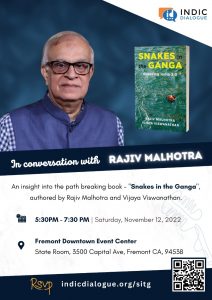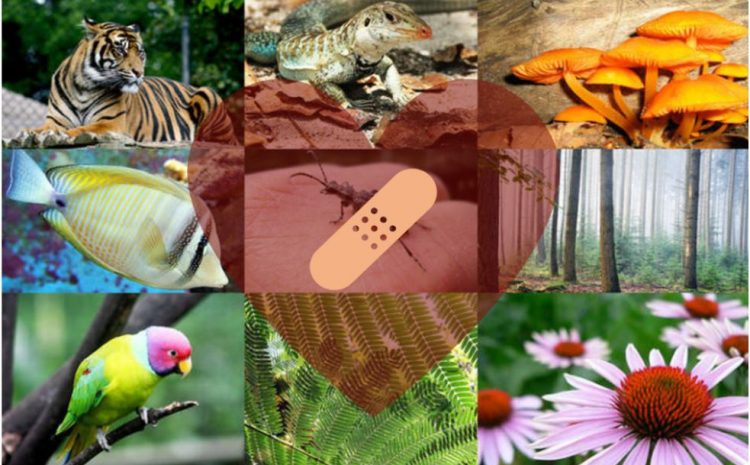
Living with Nature vs Living off of Nature
The time has come for mankind to ruminate on the impact of centuries of plunder of natural resources that has resulted in irreversible changes to the climate, ecosystem, and the well-being of living beings. It is paramount to look back and re-learn our own value system expounded by the variegated ancient cultures, religions, and philosophies on the importance of conserving and living in harmony with nature.
Truth in Tradition
“īśāvāsyamidaṃ sarvaṃ yatkiñca jagatyāṃ jagat |
tena tyaktena bhuñjīthā mā gṛdhaḥ kasya sviddhanam || 1 ||”
In the Hindu heritage for instance, the opening verse of the Isha Upanishad, reveals the profound truth about the all-pervasive, universal, infinite, pure, divine life force that is within and among all living beings, plants, animals, insects, and mother nature. Furthermore, it extends this ultimate reality to the universe and reveals how all living beings share the same universal divinity, which is why one should strive to lead a life of peace and harmony with Mother Nature. In the Patanjali yoga sutras school of philosophy the value of ‘minimalism’ has been prioritized as one of the five yamas or ethical guidelines that essentially advocate the consumption of resources appropriate to the basic needs only thus discouraging overconsumption and exploitation.
Living off of nature
In the present day and age, the felicitousness of our ancient philosophies cannot be emphasized more as human civilization comes to terms with the consequences of centuries of abuse of mother nature. The ramifications of nature abuse that face us today include but are not limited to global warming and extreme climate change resulting in adverse impacts on human health and well-being as well as animals, insects, and natural resources. It is proven by extensive research by reputed organizations including but not limited to the World Wildlife Fund (WWF) and Zoological Society of London (ZSL) that living off nature in the form of deforestation, industrial farming of animals for human consumption, poaching, pollution, dairy farming to name a few have resulted in a dire imbalance of the ecosystem that has, in turn, resulted in the extinction of animal, insect, bird and plant species thus permanently eliminating their critical roles in the ecosystem.
Statistically, living off of nature has resulted in a serious deleterious impact that has been proven by empirical evidence most notably the effects of global warming, climate change, and extreme weather resulting in devastation and destruction to humans, living beings and infrastructure. Other ramifications include 68% wildlife population decline driven by overconsumption by humans, growth in human population and intensive agriculture, overexploitation of ecosystems, habitat fragmentation and disease, loss of biodiversity, pandemic risk from biodiverse tropical regions where disproportionate land use is fuelling the spillover of zoonotic diseases for which the recent devastation of the COVID-19 pandemic is a stark reminder. Overconsumption of meat and animal products has resulted in industrialized animal agriculture and brutalization of animals, deforestation, habitat conversion and pollution, climate change, and health impacts such as cancer, heart disease, stroke, obesity, diabetes, and antibiotic resistance (www.worldwildlife.org, n.d.).
In addition to the irreversible effects on the biodiversity of marine and wildlife due to plastic waste dumping and pollution, abuse of plastics can lead to direct toxicity by the leaching of lead, cadmium, and mercury that have adverse effects on living beings, cancer via carcinogens found in plastic such as diethylhexyl phthalate (DEHP), exposure to plastic leaching from containers can result in endocrine issues, cancers, birth defects, and immune system suppression. Perhaps, our ancestors were always right in adopting earthenware, metalware that is biodegradable or long-term utilities rather than the mess created by the disposable use of plastics as discussed above (phys.org, n.d.).
Living with Nature
Every living being be the microscopic bacteria to the largest blue whale has a role to play in the ecosystem that is unique to that creature. Exploiting nature and wiping out entire species for human gain has resulted in the above-mentioned consequences. Living with nature means respecting the ecological balance and abstaining from the exploitation of animals, forests, and marine life in the form of overconsumption of animal products, industrial farming, and deforestation. Humans have evolved to thrive in diverse geographies, climatic conditions, and terrain and have included a small portion of animal-based diet in order to survive especially during extreme conditions. However, this was always in moderation as the chimpanzees and the giraffes do today in their natural habitat where they occasionally include meat and bones in their diet for nutritional purposes while predominantly thriving on a plant-based diet. Furthermore, the agricultural revolution has enabled the year-round availability of vegetables and grains around the world and there is no real need for human beings to solely rely on meat-based diets anymore, so mankind should consider a conscious reduction in meat consumption and resort to a predominantly plant-based diet when it is available in abundance and practice consuming meat, fish in smaller quantities and lesser frequencies if one cannot quit eating animal products altogether and substitute them with widely available healthy plant-based meat replacement alternatives.
Living with nature means humans individually and collectively adopt an eco-friendly lifestyle that consciously refrains from the abuse of plastics that are non-biodegradable and large quantities of which have irreversibly destroyed mother nature, control of vehicle emissions by adopting alternatives such as electric vehicles, sharing of vehicles, emission certification of vehicles, reducing the unnecessary use of 4-wheelers when the number of passengers is lesser, conversion of industrial waste into bio-processable and degradable byproducts, contributing to the environmental awareness of the general public by promulgating the need and the way including the ‘how-to’s for an eco-friendly lifestyle.
The paradigm shift to live with nature involves a multi-faceted approach that is underpinned by adopting an eco-friendly philosophy in every walk of life may it be individually or collectively that is only feasible by realizing the harm to our fellow divine living beings in the form of animals, marine life, plants and all of nature and consciously adopting a non-violent lifestyle that advocates, adopts and implements the ecological balance. It means sacrificing some of the luxuries in life or having them in moderation including meat, fish, dairy, plastic goods, vehicles, and industrial uses. It means adopting an environment-friendly lifestyle by consciously reducing demand by practicing and preaching environmental conservation, fighting against the abuse of animals and marine life, voicing support for the preservation of forests, and last but not least consciously adopting a healthy lifestyle not only for oneself but for all that is life.
The philosophy of living with nature varies with demography, geography, religion, and ethnicity and it has to be accepted in this pluralistic form to thrive. It is a way of life that is not only for the consumption of nature but also for production by humans and has to be embraced as a social responsibility by ingraining the philosophy and every aspect of day-to-day life, professional life, and public activities. It means that humans should not expect returns and believe in a philosophy of selfless service to all living beings which in itself is a path to peace, harmony, spiritual realization, personal well-being, and a prosperous society. It means the promulgation of kindness and non-violence to all living beings and abstinence from exploiting and living off of other living beings including the plant and the animal kingdom.



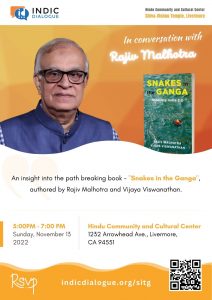
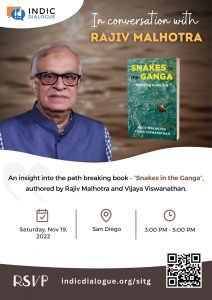
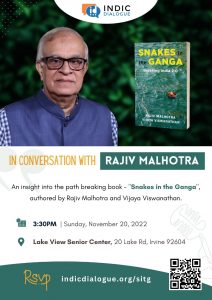 RSVP – IRVINE, CA
RSVP – IRVINE, CA